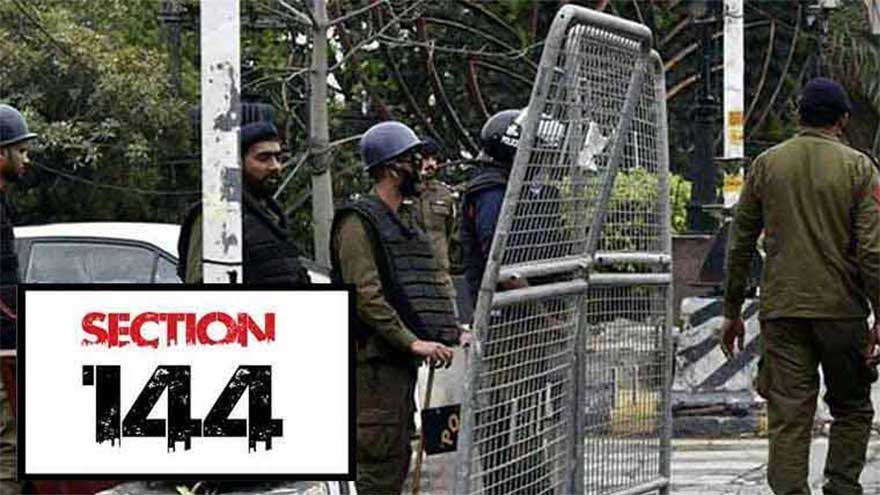RAWALPINDI, Pakistan – Local authorities have imposed Section 144 of the Code of Criminal Procedure across the entire Rawalpindi Division. This measure effectively outlaws all forms of public gatherings, including protests, rallies, and processions.
The move is a preemptive action aimed at maintaining public order and preventing potential unrest. Officials stated the order was enacted on the direct instructions of the provincial government.
The Legal Edict and Its Implications
Section 144 is a longstanding legal instrument inherited from the British colonial era. It grants the state broad powers to issue orders in urgent cases of public nuisance or apprehended danger. Under this decree, assembling in groups of four or more people for any form of demonstration is now a punishable offense.
The district administration has issued a stern warning to potential violators. A spokesperson confirmed that anyone found flouting the ban will face strict legal consequences. These consequences include the filing of formal police cases and subsequent arrests.
The order is not limited to political rallies. It encompasses all types of public congregations that could potentially disrupt peace and security. This includes religious processions and large-scale social gatherings.
A Coordinated Security Response
In response to the perceived threat, security has been significantly heightened across the division. A joint security strategy is now in effect, involving multiple law enforcement agencies.
Local police forces are being supported by paramilitary Rangers. This collaboration indicates the high level of concern among officials. All security agencies are reportedly on high alert. Their personnel have been deployed to sensitive locations and key public areas.
The spokesperson emphasized that inter-agency cooperation is complete and comprehensive. The primary goal is to ensure the safety of citizens and public property. Consequently, the public can expect an increased and highly visible security presence in the coming days.
The Context of Preemptive Bans
The use of Section 144 is a common tactic for Pakistani administrations facing potential civil unrest. However, it is often a controversial one. Critics argue it is used to suppress legitimate political dissent and freedom of assembly, which are fundamental rights enshrined in Pakistan’s Constitution.
The government’s decision reflects a pattern of preemptive action. By banning gatherings before they can even be organized, officials aim to control the narrative on the ground. This approach suggests specific intelligence about possible disturbances that has not been shared with the public.
The authorities have not specified a definite timeline for the ban’s duration. Such orders are typically imposed for a set period but can be extended indefinitely if the administration deems it necessary.
Public Appeal and Legal Ramifications
The district administration has made a public appeal for cooperation. It has urged citizens to respect the law and assist the local government in preventing any “unpleasant situations.”
This appeal underscores the administration’s desire to avoid confrontations. However, it also signals a readiness to use the full force of the law if needed. The legal ramifications for defying Section 144 can be severe. Offenders can be charged under the Pakistan Penal Code, leading to fines and potential imprisonment.
The imposition of this ban will likely have a significant impact on political and social activities. All planned public events within the division must now be cancelled or postponed indefinitely. Organizers are forced to reconsider their strategies in the face of this legal barrier.
Ultimately, the situation highlights the ongoing tension between state security and civil liberties. For now, the government has prioritized order, betting that stability will outweigh the cost of temporarily suspended freedoms. The effectiveness of this strategy, and the lasting impact such shutdowns have on civic life, was recently evident as life returned to Rawalpindi after a four-day shutdown, though scars remained.















